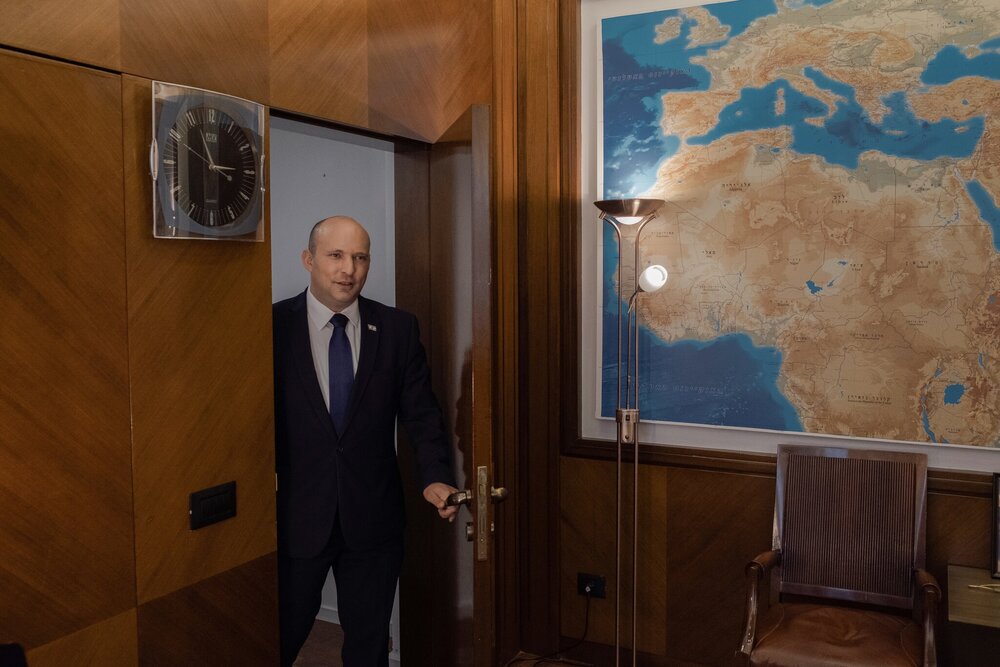Israel changes tactics to pressure Biden on Iran

TEHRAN - In his first visit to the United States as Israel’s prime minister, Naftali Bennet pledged to “block” the Iranian nuclear program in a new spirit of cooperation with the administration of U.S President Joe Biden.
But this spirit, widely believed to be a modified version of former Israeli Prime Minister Benjamin Netanyahu’s strategy, could drag Biden into a quagmire that would cost the U.S. so dearly.
The Israeli prime minister left Israel on Tuesday for Washington on his first diplomatic visit to Washington. His schedule includes meetings with Biden, Secretary of State Antony Blinken, and Secretary of Defense Lloyd Austin.
Bennet said he is bringing with himself from Israel “a new spirit of cooperation” to deal, together with the Biden administration, with many challenges including Iran.
“We will deal with many fronts, especially the Iranian front, and especially the jump in the Iranian nuclear program over the past two or three years. In particular, we will discuss the plan to block this program,” he said, according to a statement by Israel’s premiership.
In an interview with the New York Times, Bennet further elaborated on what he wanted from Biden and what he would present in Washington.
He said he would seek common ground with the Biden administration on Iran, and promised to arrive at the White House with a new and constructive approach to containing Iran’s nuclear program.
“I call it the good-will government,” he told the New York Times. “There’s a new dimension here — coming up with new ways to address problems, being very realistic, very pragmatic, and being reasonable with friends.”
According to the American paper, Bennett said he would present a new strategic vision on Iran, which he said would include strengthening ties with Arab countries opposed to Iran’s regional influence and nuclear program, taking diplomatic and economic action against Iran, and continuing Israel’s clandestine attacks on Iran, including what he called “the gray-area stuff.”
“What we need to do, and what we are doing, is forming a regional coalition of reasonable Arab countries, together with us, that will fend off and block this expansion and this desire for domination” by Iran, Bennett claimed.
The Israeli premier came to power with one objective in mind: clean up the mess Netanyahu left him. Netanyahu launched into a diatribe against the Obama administration for hammering out a nuclear deal with Iran, formally known as the Joint Comprehensive Plan of Action (JCPOA); the very same deal that Netanyahu coaxed Trump into jettisoning it.
But Netanyahu’s brazen opposition to the JCPOA undermined U.S.-Israel relations after Trump was hounded out of the White House. With the former vice president, who helped negotiate the JCPOA, assuming office, Israel needed a new face, though not necessarily a more moderate one.
Despite having a long history of hawkishness, Bennet succeeded in touting himself as the most suitable successor to Netanyahu. Thus began his efforts to patch up relations with an administration openly clamoring for a deal with Iran.
But there is a catch: When it comes to Iran, Bennet is no different from Netanyahu. And the Americans know full well that he is a chip off the old block.
“Mr. Bennett did not reveal the details of his new vision for Iran, but the policies he cited could just as easily have been articulated by Mr. Netanyahu, if perhaps more combatively,” the New York Times said of Bennet’s strategy against Iran.
Perhaps the only difference between Bennet and Netanyahu is that the former wants to quietly achieve what the latter failed to achieve vociferously.
But will Biden acquiesce in Bennet’s whims? For the time being, Biden’s position on the JCPOA seems to be diametrically opposed to that of Bennet. But one should never underestimate Israel’s ability to muddy the waters.
Speaking days before his meeting with Biden, Bennet vowed to oppose American-led attempts to reinstate a lapsed nuclear agreement with Iran and continue Israel’s covert attacks on Iran’s nuclear program, according to the New York Times. This begs the question: What will Bennet do if the Biden administration proceeds with its stated goal of pursuing talks with Iran until reaching a deal?
Whether Washington and Tel Aviv would find a middle ground on Iran remains an open question. This makes it all the more important for the Biden administration to be careful of what its Israeli “partners” contrive. At some point, Iran could find it difficult to continue negotiations if Israel proceeds with its “gray-area stuff.”
Israel may even make a bigger mistake. While Bennet was busy meeting senior American officials in Washington on Wednesday, Israeli Defense Minister Benny Gantz issued a stark threat. Claiming that Iran is two months away from acquiring the ability to develop a nuclear weapon, Gantz said he does not rule out the possibility that Israel would have to take measures to prevent Iran from becoming a nuclear power.
Leave a Comment